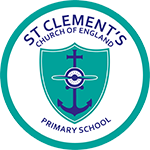Maths
Intent
Our aims for all the children in Mathematics are:
- provides breadth and balance,
- relevant and engaging and is differentiated to match the needs and abilities of all our children to ensure that all pupils are able to excel.
- use the concrete-pictorial-approach as a means to developing a solid understanding of mathematical concepts
- apply a variety of contexts through reasoning and problem-solving challenges.
- Children receive a minimum of 5 hours maths tuition each week with additional sessions devoted to number proficiency and times tables.
- From Reception to Year 6, we adhere to our calculation policy which outlines the progression of strategies and methods to be taught
- Use the planning from White Rose small steps with the freedom to revise and reteach to enable more cohesive understanding.
- From Reception to Year 6, children follow the scheme of ‘White Rose’ which supports children in learning the fundamentals behind the meanings of numbers and exploring other key mathematical areas.
- Our maths curriculum is also supported through the implementation of resources from White Rose and teacher made resources
- The use of small steps to break down the teaching sequence into small achievable steps.
- Where children require additional support, ‘scaffolds’ are used to support children further to ensure that they have secured the small step before moving on. These ‘scaffolds’ may be in the form of returning to concrete resources or pictorial representations.
- For children who understand a concept quicker, challenges are used to deepen and challenge learners further within the curriculum area. These are evident in children’s books.
- Marking follows the school’s policy.
- Progression documents such as our calculation policy are carefully used to ensure that children are not being stretched outside their year group but rather deepened within it.
- Within daily teaching, children will be reminded/taught fact sentences linked to previous/current learning which will constantly be referred to within the lesson.
- Daily assessment is incorporated throughout the lesson through live and verbal feedback. Where children require additional support, ‘Closing the Gaps’ are used to support children ensuring that they are ready for the next ‘small step’.
- Termly assessments are used as a diagnostic tool to ensure that teachers are adapting learning to meet the needs of all children and ensure that any necessary interventions are targeted specifically to meet the needs of children.
- Times tables play an important part in our maths learning, with children developing their fluency in rapid recall of tables up to 12 x 12 by the end of year 4. While the rapid recall of times tables is being developed, children are also learning how to apply and manipulate their understanding of this to reason and solve problems. Children from Y1 – Y6 have the opportunity to consolidate and apply their times tables knowledge by using Times Tables Games both at home and in school.
- By the end of Year 6, transitioning to secondary school, we aspire children will have developed a bank of efficient and accurate skills that can be used to calculate and reason effectively.
Implementation
At our school, the implementation of the Maths Curriculum is carefully planned and sequenced to deliver effective teaching and learning experiences for all pupils. The school provides an engaging curriculum that incorporates a range of teaching approaches and resources to accommodate the needs of all learners.

 St Clement's Church of
England Primary School
St Clement's Church of
England Primary School